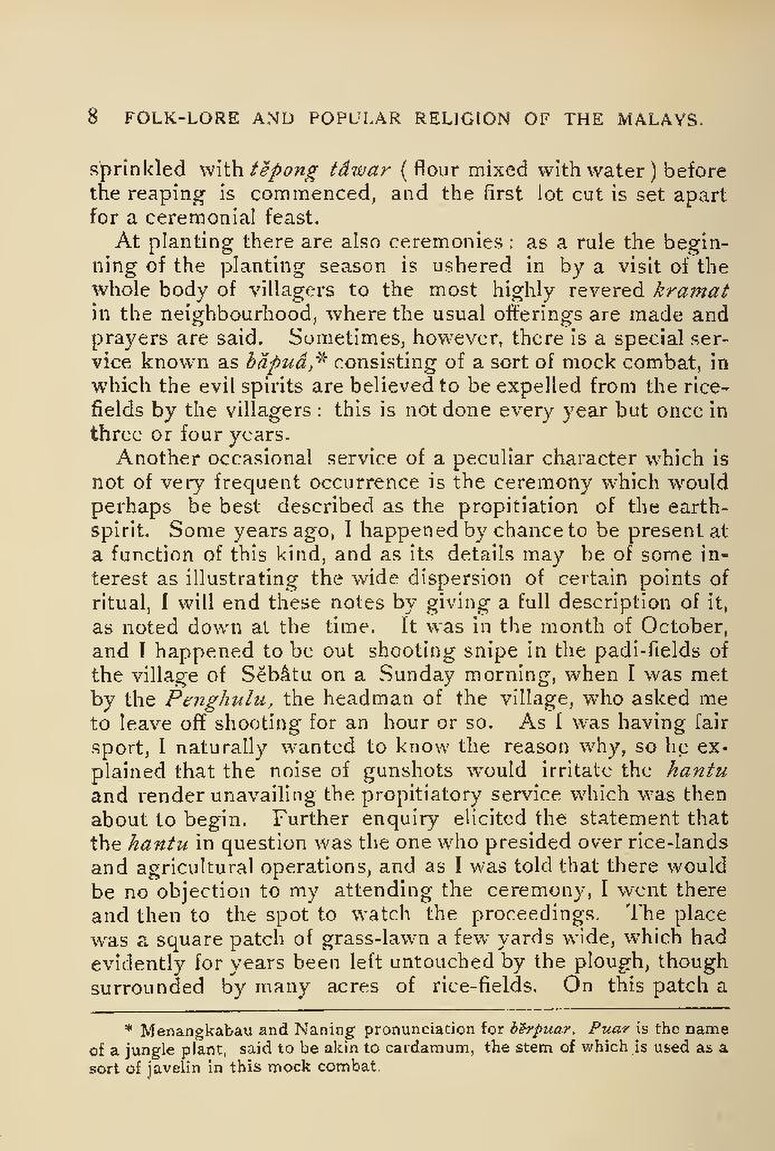sprinkled with těpong tâwar (flour mixed with water) before the reaping is commenced, and the first lot cut is set apart for a ceremonial feast.
At planting there are also ceremonies: as a rule the begin- ning of the planting season is ushered in by a visit of the whole body of villagers to the most highly revered kramat in the neighbourhood, where the usual offerings are made and prayers are said. Sometimes, however, there is a special service known as băpuâ,[1] consisting of a sort of mock combat, in which the evil spirits are believed to be expelled from the rice-fields by the villagers: this is not done every year but once in three or four years.
Another occasional service of a peculiar character which is not of very frequent occurrence is the ceremony which would perhaps be best described as the propitiation of the earth- spirit. Some years ago, I happened by chance to be present at a function of this kind, and as its details may be of some interest as illustrating the wide dispersion of certain points of ritual, I will end these notes by giving a full description of it, as noted down at the time. It was in the month of October, and I happened to be out shooting snipe in the padi-fields of the village of Sěbâtu on a Sunday morning, when I was met by the Penghulu, the headman of the village, who asked me to leave off shooting for an hour or so. As I was having fair sport, I naturally wanted to know the reason why, so he ex. plained that the noise of gunshots would irritate the hantu and render unavailing the propitiatory service which was then about to begin. Further enquiry elicited the statement that the hantu in question was the one who presided over rice-lands and agricultural operations, and as I was told that there would be no objection to my attending the ceremony, I went there and then to the spot to watch the proceedings. The place was a square patch of grass-lawn a few yards wide, which had evidently for years been left untouched by the plough, though surrounded by many acres of rice-fields. On this patch a
- ↑ Menangkabau and Naning pronunciation for bĕrpuar. Puar is the name of a jungle plant, said to be akin to cardamum, the stem of which is used as a sort of javelin in this mock combat.
